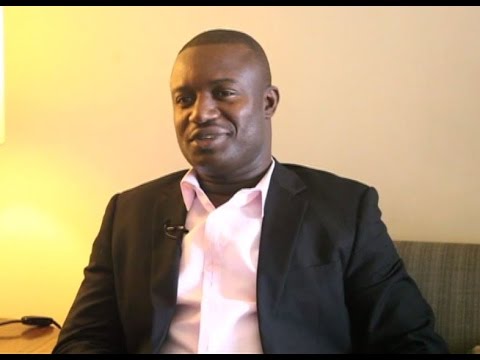Ghana FSRU Still Needs Parliament's Approval - Minister
Ghana’s debt, unreliable piped gas supplies from Nigeria, and a floating LNG import terminal that has yet to be installed at the country’s main port were just three of the challenges facing key Ghanaian speakers at a panel on June 24 at the Africa Energy Forum at London’s Docklands.
Ghana’s deputy power minister John Jinapor, in response to a question from Natural Gas Africa, said that the government’s decision to import LNG began with a discussion of the matter with ministers, then involved getting full cabinet approval, and finally required parliamentary approval.
Jinapor said a ratification from parliament was still needed before any LNG imports were allowed.
This may explain why the floating LNG import terminal, FSRU Golar Tundra, on charter from Golar LNG to West African Gas Ltd (WAGL), a Nigerian joint venture of state NNPC and private firm Sahara Energy, has been at anchor offshore for a month – apparently not allowed to dock.
On June 5, Ghana-based African Centre for Energy Policy (ACEP) said the WAGL project was technically, legally and economically less desirable than a rival FSRU-based project of Quantum Power, and said WAGL should have secured parliamentary approval before the FSRU reached Ghana.

Ghana's deputy power minister John Jinapor (Photo credit: YouTube)
Yet the country has insufficient gas to fuel its power plants.
A week ago N-Gas, a marketer of Nigerian gas through the West African Gas Pipeline (WAGP) to Ghana, said it halted supplies to major Ghanaian gas buyer Volta River Authority (VRA) because of non-payment.
Speaking in London June 24, VRA chief executive Isaac Kirk Koffi admitted: “Today we face a challenge of low hydro-electricity supply and no gas imports.” He pointed to plans in place to settle Nigerian gas debts over time but gave a different interpretation of why Nigerian imports stalled last week.
“Nigeria doesn’t have the gas. There’s been sabotage. Their lines have all been blasted,” VRA’s Koffi told NGA: “Because its production is associated gas, when they blast the oil lines, they cannot produce oil or gas. That is the challenge we have [in Ghana]. Nigeria today can only produce 1,900 MW. Most of their plants are shut down. So they don’t have the gas to send us. So even if we paid all the money, we’re not going to get the gas.”
Regarding the FSRU anchored offshore Ghana’s port of Tema, Koffi said: “We’re still trying to finalise the agreement, and we will move to do that.” Once LNG imports start, then “definitely, we could be a customer [of LNG] for our power generation,” the VRA chief said.
.jpg)
Volta River Authority CEO Isaac Kirk Koffi (Photo credit: VRA)
A fellow panellist on the Ghana panel in London, Aubrey Hruby of consultancy SoEnergy, said that Ghana’s debt to GDP ratio is high, at over 70%, which was why the World Bank and commercial banks don’t want the country to take on any more debt. She said Ghana was in a “uniquely constrained situation” currently, and that long-term power supply agreements are needed with end-users, so that there is transparency over who pays what tariffs.
A Chinese-owned independent power project (IPP) said earlier this month that state-owned Electricity Company of Ghana had run up a $100mn debt with it, which meant it could also not pay VRA for its supply of gas via WAGP "thus creating a cycle of debt in the power generation sector."
Some IPPs in Ghana though are in a better situation than others. Greek contractor Metka’s Africa director Vangelis Kamaris said it has built a 250-MW plant at Takoredi, now in operation, for its client Amandi Energy that runs wholly on associated gas from the Tullow-operated Jubilee field offshore Ghana. Metka says it is now in talks to build 400 MW of new gas-fired plants in Ghana.
Two new oil and gas developments offshore Ghana itself will bring more gas to the onshore market: TEN, also Tullow-operated, is expected to land first gas in Ghana in 2017, followed by the OCTP venture (also known as Sankofa) of Eni and Vitol that should start delivering gas in 2018.
Mark Smedley | www.naturalgasafrica.com


